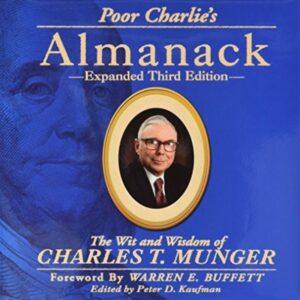Podcast: Play in new window | Download

Reading Time: 3 minutes
Some business stories are loud. This one is not.
It is a story about a company that rode a massive kerosene wave, watched that wave fade, and still found a path to grow. Not by guessing the future perfectly, but by making one early decision that created options, then having the discipline to follow the market where it actually went.
When Y2K Turned Kerosene Into A Boom
Kerosene hit its peak around Y2K. In 1999, fear was everywhere. People thought electronics would fail, lights would go out, and basic needs like heat and cooking would become a problem overnight.
So demand exploded. The company sold huge volumes of kerosene heaters, fuel cans, and related products. At one point, they sold roughly 100,000 portable cookstoves because customers believed it might be their only way to cook and stay warm.
Then the moment passed.
Y2K came and went, and kerosene continued to dwindle year after year. Eventually, the decline became so clear that in 2023 the company sold off the kerosene division.
The 1993 Decision That Changed Everything
Here is the part that matters most. In 1993, the company was asked to consider selling gas products like gas logs, fireplaces, and wall heaters.
At the time, it was a big step. But it fit the same customer base. It was adjacent. It made sense.
In 1999, the business mix was still heavily weighted toward kerosene at about 97 percent kerosene and 3 percent gas. Over the next decade plus, that mix flipped completely. For the last 10 to 15 years, it has been essentially all gas and barely any kerosene.
That is what adaptation looks like when it is done with patience. You do not need to abandon the core. You need to build a second engine before the first one stalls.
Growth Through Strategic Acquisitions & Regional Strength
This is also a competitive industry. There are large players and plenty of regional distributors who focus on a two to three-state footprint and win through service and relationships.
The company leaned into scale by acquiring regional competitors and turning those acquisitions into real operating hubs. Two key examples were Kentucky and Texas, where they now run full operations:
In Mount Sterling, Kentucky, they operate a 68,000 square foot facility. In Texas, they operate a 150,000 square foot facility shipping product every day. They also maintain a smaller warehouse in Florida to serve that market.
This is not acquisition for acquisition sake. It is acquisition tied to distribution, service levels, and operational reach.
Optionality, Focus, and People
This story maps cleanly to intelligent investing principles.
First, temporary spikes are not the same as durable demand. Y2K was real, but it was not permanent.
Second, small decisions can create massive optionality. That 1993 gas expansion started as a minority of the business and became the business.
Third, disciplined focus matters. Selling the kerosene division in 2023 is not a loss. It is clarity. It is making the business match reality.
And finally, people are the multiplier. Scott describes looking at his team in biweekly meetings and still feeling energized by the work: “I still enjoy getting up in the morning and coming to work.”
That is not just sentiment. It is a signal. Businesses that keep adapting usually have leaders and teams that can execute change without losing their identity.
More From Scott Groves
Please be sure to subscribe to our podcasts as we will be interviewing Scott on upcoming podcasts where he shares valuable insights on principles of stewardship, adaptability, and long-term thinking that drive both business and investing success.
Scott Groves Bio
Scott Groves is the Chief Executive Officer of CUI Distribution, a leading heating products supplier headquartered in Greenville, South Carolina. With more than four decades of experience in the industry, Scott has guided CUI through significant growth and transformation since taking over the family business founded by his father in 1978.
Under his leadership, CUI has expanded from its origins in kerosene heaters and cans to become a trusted distributor serving residential, commercial, and industrial heating markets across the nation. Known for his practical leadership style and deep commitment to customer service, Scott emphasizes innovation, reliability, and family values as the foundation of CUI’s success.








